Italian Prime Minister Matteo Renzi is set to resign after being decisively defeated in a referendum on Sunday, in which he proposed a number of sweeping changes to the Italian constitution. Three questions need answers now: What is the next stage in this new Italian political drama? What are the immediate priorities for a new government? And what do Italy’s international partners want?
The next steps
President Sergio Mattarella could have theoretically rejected Renzi’s resignation and asked him to re-shuffle his government to carry on until the natural end of the legislative period. However, given the magnitude of Renzi’s defeat—about 60 percent of voters said “no”—and the fact that many in Renzi’s Democratic Party are now openly questioning the prime minister’s leadership, President Mattarella accepted Renzi’s resignation, but asked him to delay it. It will be officially tendered once the Italian Senate approves the 2017 budget in the next few days.
A second option would be for Mattarella to call for elections, but this is highly unlikely. Should Italy now go to the polls, the members of the Chamber of Deputies and the Senate of the Republic would be elected with two radically different electoral laws. The former would be elected with a mixed proportional and majoritarian law that ensures that the party that wins the relative majority of the vote is assigned extra seats in the lower chamber, to form a more stable majority. The latter would be elected with a proportional law that does not provide such a bonus for the party with a relative majority. Such a state of affairs would inevitably lead to different majorities in each chamber and, consequently, to even greater political instability.
Most likely is that President Mattarella will seek a new prime minister to form a technocratic government and steer the country out of the crisis. A former IMF official and OECD deputy secretary general, Finance Minister Pier Carlo Padoan is respected in international financial circles and would be the obvious choice to manage Italy’s precarious financial situation. Pietro Grasso is a former anti-mafia magistrate that previously served as senator and as interim president. He would be the most suitable person to reform Italy’s messy electoral system that currently makes it virtually impossible for any political party to find a stable majority. Other names might come up, but for the time being, these are the front-runners.
Banks, bonds, and budgets
Any incoming government will immediately have to deal with three pressing issues. First of all, it is crucial to complete the rescue of Monte dei Paschi di Siena. The world’s oldest bank is unviable due to its excessive exposure to bad loans. While small in absolute terms, Monte dei Paschi has the potential to infect the rest of the Italian banking system and, in turn, the eurozone. As financial contagion to other banks and beyond Italy are a distinct possibility, a bail-in, a bailout, or a combination of the two is clearly on the cards.
The bond markets will also have to be kept under scrutiny. At over 130 percent of its GDP, Italy’s enormous public debt is still sustainable, but a constant reminder of the sorry state of the country’s finances. While short-term speculative attacks on the bond markets cannot be ruled out, there are no objective reasons to panic. Mario Draghi’s European Central Bank (ECB) stands ready to reassure the eurozone with the firepower of its bond-buying scheme but the markets will still demand a trustworthy government.
As the year draws to an end, the Senate must still pass the budget law for 2017. This was always supposed to walk a fine line between mildly expansionary initiatives—as Renzi wanted—and the financial discipline imposed by the EU’s budgetary rules. As the Senate must approve the legislation already passed by the Chamber of Deputies by the end of the year, Italy is coming perilously close to having no overarching financial framework for 2017.
Between Brussels and Berlin
In private conversations, all European—and indeed global—partners make their wishes very clear: They want a technocratic government led by a non-partisan and highly respected public figure. The mandate of such a government would be to sort out Italy’s banks, reform the electoral law, and draft the budget law for 2018. Italy would then be on a steady path until it holds legislative elections (as already scheduled) in early 2018. Meanwhile, Amsterdam, Berlin, and Paris could go to the polls without fretting about Italy. In private conversations across Europe, high-ranking officials and politicians across the political spectrum cheer for Pier Carlo Padoan. He would be a good choice to lead the government until early 2018.
Brussels will play a key role in the coming days. The extent to which the European authorities will be ready to support the recapitalization of Monte dei Paschi di Siena will be crucial in ensuring macro-financial stability across Italy and the eurozone. Under new EU rules, shareholders and bondholders are supposed to be the first ones to take a hit before any public funds are made available. The question now is to what extent an estimated 40,000 small investors could be spared from paying for the bank’s reckless behavior in the past.
German Chancellor Angela Merkel has a vested interest in stabilizing Italy for another 12 months. As her country heads to the polls in the fall of 2017, an Italy on the brink of financial meltdown would be a disaster for her. The chancellor would find herself between a rock and a hard place: going against public opinion by investing precious political capital by supporting Italy, or risking the eurozone’s stability by refusing to come to Italy’s rescue.
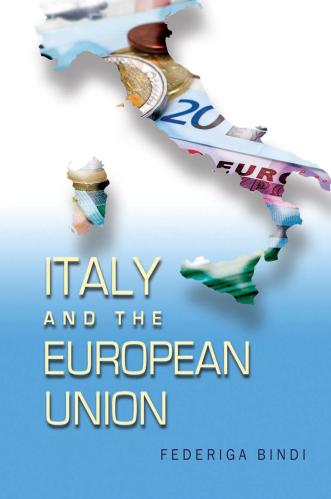
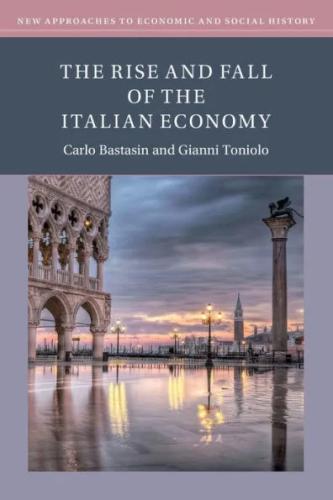
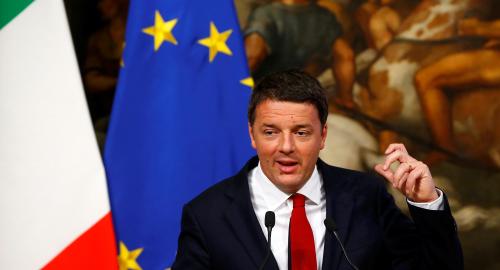
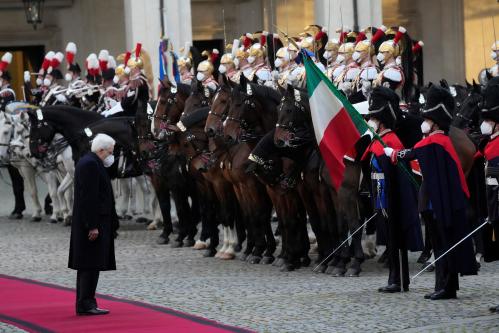
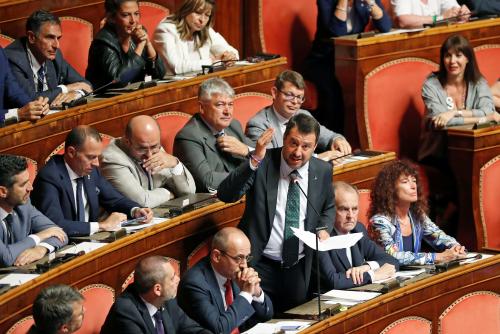

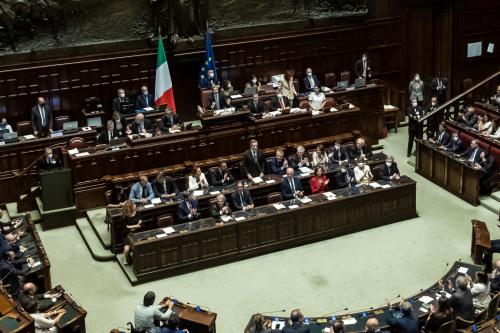
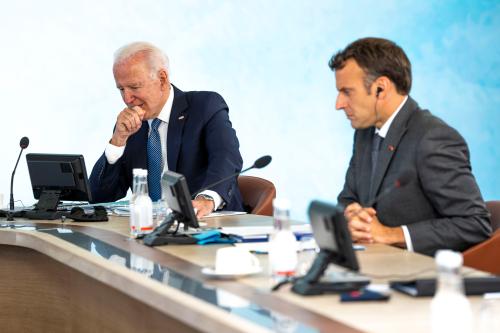
Commentary
The international implications of Italy’s referendum
December 6, 2016